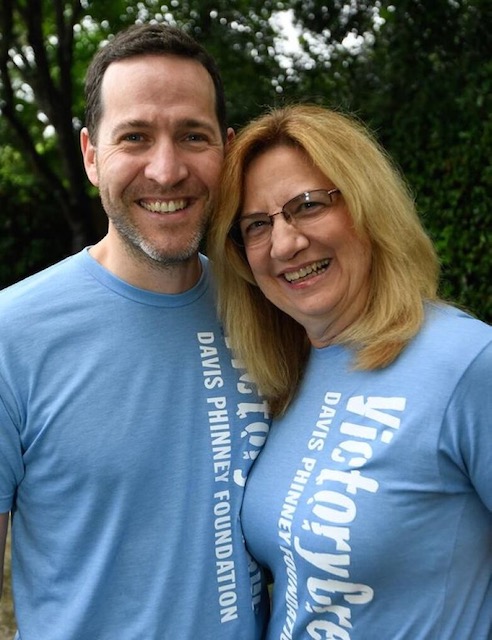"Yes, and?" Improv classes are emerging as the next big thing among the YOPD community.
Some common advice for maintaining quality of life with Parkinson’s includes staying physically active, paying attention to your nutrition, staying on your meds, and focusing on your mental health. But recently, a more unique activity has been gaining traction among the YOPD community: Improv.
After her diagnosis in 2015, Susan Scarlett found herself feeling scared and withdrawn from her normal life and activities. Fortunately, her support system kicked in and family and friends helped her to stay active and seek out new opportunities for keeping busy and enjoying life.
When her nephew, Adam, set out to break a world record by swimming the length of Lake Okanagan, he dedicated the feat to Susan to keep her motivated and inspired to live fully despite her diagnosis. They trained together and ended up filming a documentary about the experience called Victory Swim.
Dr. Robert Cochrane, a Ph.D. student who was studying the effects of improv on Parkinson’s patients at the time, saw the documentary and invited Susan to participate in his clinical trials. And thus, Susan began her improv journey.
For those who are unfamiliar, improv is a form of live acting (typically comedic) in which the situation, characters, and dialogue are all made up on the spot. No scripts, just saying what comes to mind.
“I was very shy and inexperienced at first,” she recalls. “I’d never performed and lacked the self-confidence to be in front of an audience like that. But about two and a half years into it, I realized I wasn’t just naturally shy — I was afraid.”
Most of us are familiar with how it feels to fear failure and judgment, but when you throw in a neurological disease that affects your motor function, those feelings can become debilitating. Parkinson’s patients often have to deal with this extra layer of self-consciousness about their speech and movement in addition to any existing insecurities, which is, without a doubt, emotionally exhausting.
“The way Robert teaches, he celebrates words like ‘fear’ and failure,’” she says. “We truly get to experience failing and making big mistakes, but in a safe environment where we celebrate them and there’s no judgment.”
Having regular opportunities to practice openness, acceptance, and forgiveness among a community of peers struggling with the same thing has helped Susan to build her confidence back up after her diagnosis. She now attends regular Improv group sessions run by Dr. Cochrane.
“It helps you to change your mindset and your perspective on your situation. Practicing improv has helped me to build up trust and respect for myself and others, which really helps with the depression a lot of Parkison’s patients experience.”
Susan describes her improv practice as having taken her from her post-diagnosis paralysis to blooming into a more active person and taking on things she never imagined she would do. Since participating in Dr. Cochrane’s clinical trials, she has attended events as a keynote speaker and feels a new sense of purpose, pride, satisfaction, and delight in her life.
Who knew that a seemingly playful activity could result in such profound and positive implications for those living with Parkinson’s? To learn more about Susan’s story or find out how you can get involved in Improv, visit https://www.yesandexercise.org.

